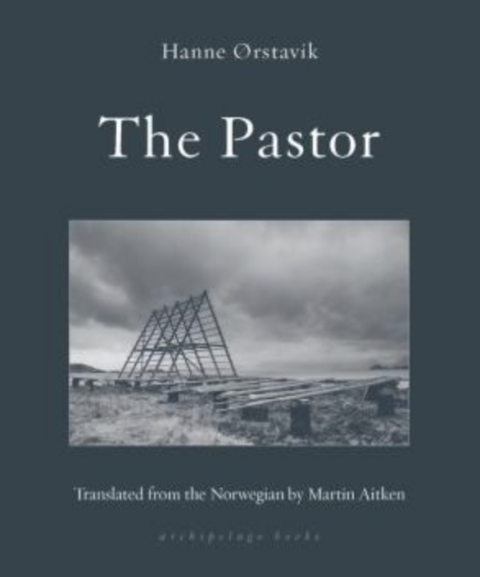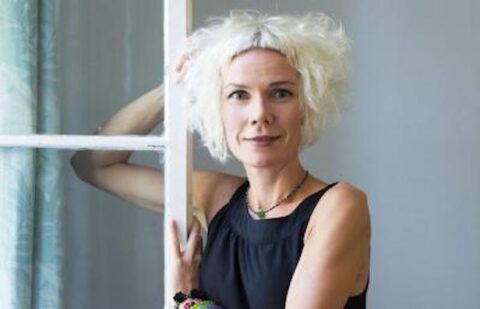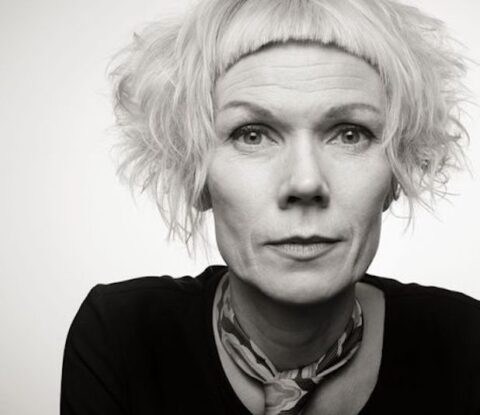Anglophone readers had to wait 21 years for the arrival of Love, Hanne Ørstavik’s third novel, translated by Martin Aitken, which promptly won the 2019 PEN Translation Prize. Published in 1997, the novel was voted at that time one of the best Norwegian novels of the past 25 years in a poll conducted by the Norwegian daily Dagbladet. The narrative follows a single mother and her young son as each goes separately into their town after a dinner together; the next day will be the boy’s ninth birthday. With modestly essential insights and exquisite tonal control, Ørstavik leads one away from them as a pair, even as the unaddressed nature of their relationship seems to hum in the background. One feels a marginal tension as they proceed individually, a muted expectation, which Ørstavik tenderly and shrewdly frustrates, drawing our attention instead to the texture of their perceived world. In its actions, Love is ultimately a novel about insularity – and in its language, a novel about reckoning with the world by paying attention.
 We now have Ørstavik’s seventh novel, The Pastor, first published in 2004, also rendered by Aitken. Nothing has changed – and everything has changed. Once again, events are secondary to the lingering consideration of them, but now that consideration is shared overtly between narrator and reader. It is a novel of unanswered questions. The narrator is Liv, a theology school graduate who has traveled from Germany to serve as a pastor in the far north of Norway. As the novel opens, she recalls her first sermon from a year previously; she cringes at having preached for far too long on that occasion:
We now have Ørstavik’s seventh novel, The Pastor, first published in 2004, also rendered by Aitken. Nothing has changed – and everything has changed. Once again, events are secondary to the lingering consideration of them, but now that consideration is shared overtly between narrator and reader. It is a novel of unanswered questions. The narrator is Liv, a theology school graduate who has traveled from Germany to serve as a pastor in the far north of Norway. As the novel opens, she recalls her first sermon from a year previously; she cringes at having preached for far too long on that occasion:
“These people, kneeling. As if to say: we tolerate you, despite everything. Perhaps they’d even forgotten. I could have gone somewhere else, somewhere other than here, only I knew something would have happened there, too. Not the same thing again, but something else I couldn’t prevent. Something inevitable from which subsequently I would have been unable to hide. Something that could be seen in my face … It seeped from inside me, whatever it was that made me ruin things.”
The Pastor, like Love, is preoccupied with the gulf between people. But now Ørstavik is working from the inside, and the tragic struggles of people, especially disconsolate young women, are foregrounded. In Germany, Liv had made a friendship with Kristiane, a puppeteer; forty days after they met, she killed herself. The memory of Kristiane’s “weightless” playfulness both inspires and oppresses Liv who struggles to find a middle ground between substance and spirit. Ørstavik keeps the reader stuck as well; Liv sounds like an empathic person, but is she really? Or are her ideals too lofty? Liv wants her words to have “fullness and weight,” but words themselves seem to repudiate that firmness: “I’d always found it silly, the idea that you can make things happen with words alone … It was why the priesthood wouldn’t be right for me. I couldn’t make do with simply uttering the words, airing them without that other dimension being present, without feeling their intrinsic weight.”
I imagine that Love would have both charmed and distressed Liv (just as Kristiane did) with its implications about language as an oblique gateway to the world. Recalling her graduate thesis, Liv says, “The words I needed to write the thesis were too pointy, too edgy, and everything that meant something got lost in order and system. Everything that was vital vanished.”
 Liv’s responsibilities include “preparing christenings, the cure of souls, evening prayer in the church on Wednesdays. Visiting people in their homes, teaching the confirmation candidates.” We follow her from one moment to another, much as we followed Vibeke, the mother in Love. Ørstavik will not provide facts and analyses that accumulate into “understanding”; if Love is a companionable type of stasis, The Pastor is a tormented one. Yet strangely, as with Love, while the language never raises its own pulse, our pulse may race at times. It agitated me to hear Liv say, “What was it I wanted that was too much for me? This abyss, this void in me that couldn’t be filled. What was it? What was I doing here? What would I have done somewhere else? Why wasn’t there anyone to hold on to me?” That last sentence is the only instance in which I find Liv expressing her own need for embrace. Ever suspicious of language itself as a salve, she is candid about her halting approach toward those she is supposed to comfort. The unreliability of language may be a motif here, but Ørstavik is in full control — and Martin Aitken, his hand steady on the throttle, discerns her intentions with an acute ear.
Liv’s responsibilities include “preparing christenings, the cure of souls, evening prayer in the church on Wednesdays. Visiting people in their homes, teaching the confirmation candidates.” We follow her from one moment to another, much as we followed Vibeke, the mother in Love. Ørstavik will not provide facts and analyses that accumulate into “understanding”; if Love is a companionable type of stasis, The Pastor is a tormented one. Yet strangely, as with Love, while the language never raises its own pulse, our pulse may race at times. It agitated me to hear Liv say, “What was it I wanted that was too much for me? This abyss, this void in me that couldn’t be filled. What was it? What was I doing here? What would I have done somewhere else? Why wasn’t there anyone to hold on to me?” That last sentence is the only instance in which I find Liv expressing her own need for embrace. Ever suspicious of language itself as a salve, she is candid about her halting approach toward those she is supposed to comfort. The unreliability of language may be a motif here, but Ørstavik is in full control — and Martin Aitken, his hand steady on the throttle, discerns her intentions with an acute ear.
The spectre of suicide drifts through the novel – a young woman in the village, then the daughter of the church’s attendant (Liv shares a house with the latter two). But also, there is some history, obscure to Anglophones – the oppression of the Sami people by Norwegians. The Sami, usually called Laplanders, a term they find offensive, are an indigenous people living in the northern areas of Scandinavia who speak a Finno-Ugric language. In the mid-19th century, Sami religious radicals rose up in defiance of the conventional church and were violently suppressed. (Even recently, in 2011, the U.N.’s Racial Discrimination Committee chastised the Norwegians for their anti-Sami discrimination.) The fervency and persistence of the Sami preoccupy Liv at times, though her interest in them seems more scholarly than intrinsic to her duties, another piece of the faith puzzle.
 The Pastor may initially remind American readers of Marilynne Robinson’s novels. But that likeness is soon dispelled. Brock Clarke has noted that Robinson spells out her novels’ key value in her essay “Imagination and Community” when she writes, “The great truth that is too often forgotten is that it is in the nature of people to do good to one another.” But he he objects, maintaining that for a novelist, goodness as a foundation “is not strictly wanted, because it makes you want to rise above. Meanness … requires that you sink in.” Liv may want goodness too much — but Ørstavik has a taste for beneficial meanness, and won’t allow Liv’s anxieties to resolve.
The Pastor may initially remind American readers of Marilynne Robinson’s novels. But that likeness is soon dispelled. Brock Clarke has noted that Robinson spells out her novels’ key value in her essay “Imagination and Community” when she writes, “The great truth that is too often forgotten is that it is in the nature of people to do good to one another.” But he he objects, maintaining that for a novelist, goodness as a foundation “is not strictly wanted, because it makes you want to rise above. Meanness … requires that you sink in.” Liv may want goodness too much — but Ørstavik has a taste for beneficial meanness, and won’t allow Liv’s anxieties to resolve.
Towards the end of the novel, Ørstavik gives an inch as Liv seems to see a way to accommodate the gulf that troubles her: “To keep everything open, in all its vastness. Not fence things in and pin them down.” But maybe not. Even so, this is also a cue for the reader who likes their fiction to wrap up with an affirmation, an answer to Liv’s appeals and inquiries. The “something greater” we might want, if we could just relent, is the incommunicable and confusing world itself. The qualities of The Pastor, like those of Love, deliver us to what is actual. Liv just might accept what she has always known: “Is it not forever the case, that we believe ourselves to have come to clarity, only to find that we have not?”
[Published by Archipelago Books on October 19, 2021, 270 pages, $20.00 paperback]